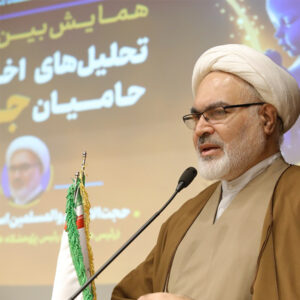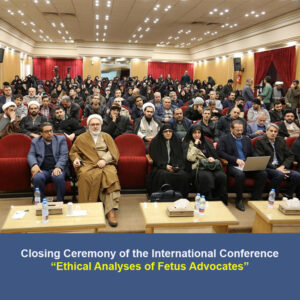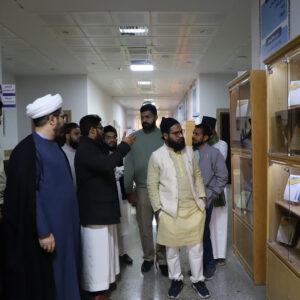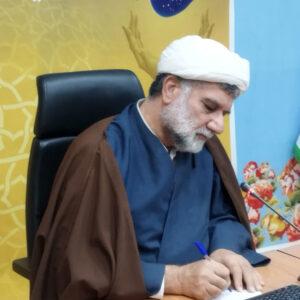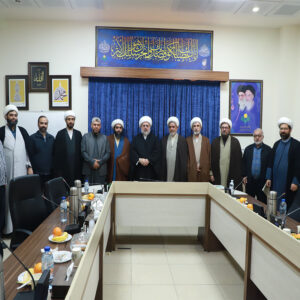What nowadays has been the dominant aspect in the field of religious sciences and the grand religious scholars have supported the efforts, studies and research greatly for centuries, is the jurisprudence and knowledge related to the divine minor ruling. If anyone wants to define and introduce the today’s Islamic seminaries, before everything else, the first thing he/she can see is Fiqh (jurisprudence) which dazzles the eye of the observer with its amazing glow.
This precious heritage of Imamiyyah religion with a long history and a remarkable inference, depth and strength hasn’t been introduced as expected and has remained unknown among the valuable jurisprudential books. On the other hand, the emergence of new technology and the human life and livelihood transformation in individual and social aspects require answers based on the Shari’a (Islamic law), and as the Supreme Leader of Iran has said, ” the intellectual generator of Islamic system must respond to this important issue, identify the today’s new lifestyles and their changes and found the regulations of social relations and connections, conforming to the rules of the Shari’a based on the Islamic life-maker rulings.
The Department for Jurisprudential and Legal Issues, in addition to inviting and searching for Islamic seminary and university researchers in order to study the works of the prominent jurists of Imamiyyah religion in a serious, solid and valid way with a new method, tries to deal up with bringing up the novel issues and finding the appropriate response conformed to the scientific criteria of Usul and jurisprudence and based on the requirements of time and place. In this regard, one of the most important goals of this department is to use the curious and meticulous researchers from Islamic Seminary and universities.
A. Research Domain of the Department
1. The Department for Jurisprudential and Legal Issues is in charge of investigating the special jurisprudential and legal issues which are new and challenging at the macro level of the society and Islamic system of Iran.
2. Issues raised in all legal fields including public law, private law, criminal law, internal and international law which are in the framework of the research center’s objectives and related to the special jurisprudential topics (In contrast to the topics related to philosophy of jurisprudence).
3. Part of the major political issues that are related to political sciences and not related to the inference of rulings or jurisprudential theories, are out of this department’s domain.
4. General and philosophical aspects of human rights are out of this department’s domain, but the special examples related to human rights such as apostate rulings, jurisprudential aspects of freedom issues, relationship of people and government and so on are in the domain of the aforementioned department.
B. Objectives
The most important objectives that the studies of the Department for Jurisprudential and Legal Issues focus on to achieve are as follows:
1. Bringing coherent jurisprudential and legal solutions in fields of novel issues especially the issues facing the system of Islamic Republic of Iran.
2. Providing a rich Shia jurisprudence in a new appearance and appropriate method according to the needs of time and place.
3. Explaining and providing the jurisprudential and legal issues and challenges facing the Islamic Seminaries along with bringing scientific and practical solutions.
C. Duties
In order to accomplish the aforementioned objectives, this research center is in charge of the following duties:
1. New and special jurisprudential issues (In contrast to the topics related to jurisprudential philosophy).
2. New jurisprudential-legal issues in all the fields of law including public law, private law, criminal law, internal and international law especially in the issues required by system of Islamic Republic of Iran.
3. Old jurisprudential issues which for some reasons need to be reviewed especially in the issues required by system of Islamic Republic of Iran.
4. Islamic legal system and its compatibility and comparison with others legal systems.
5. Effective jurisprudential and legal patterns and theories
6. Identifying the jurisprudential and legal gaps, needs, harm and problems in the system of Islamic Republic of Iran.
7. Jurisprudential-legal pathology of legal, judicial and executive institutes in the system of Islamic Republic of Iran.
8. Providing the context for growth and development of knowledge and capability of the department’s researchers through forming the training workshops, holding scientific meetings and dialogues, creating study opportunities.
9. Identifying, hiring, and using the skilled researchers and experts and supporting the jurists of Islamic Seminary to pave the way for their growth and promotion.
10. Informing Islamic Seminaries in the fields of novel questions and challenges of the society and Islamic system in the arena of Islamic jurisprudence and law.
11. Having relations and cooperation with scientific, research and executive institutes, organizations, associations and centers to pursue the department’s objectives.
12. Having an active and constructive relations with other research departments of the research centers in order to carry out the common projects

